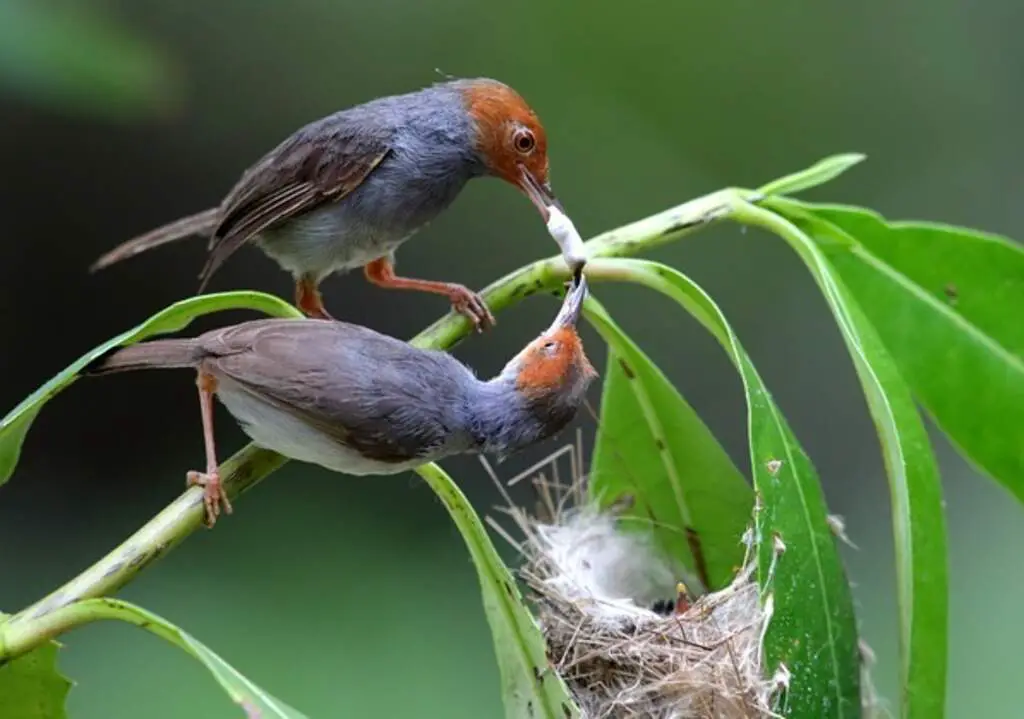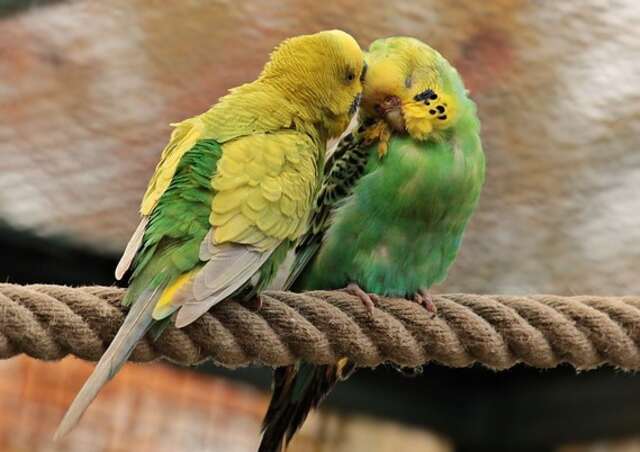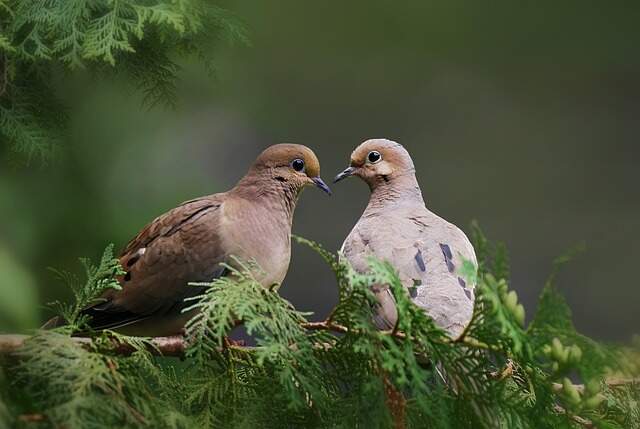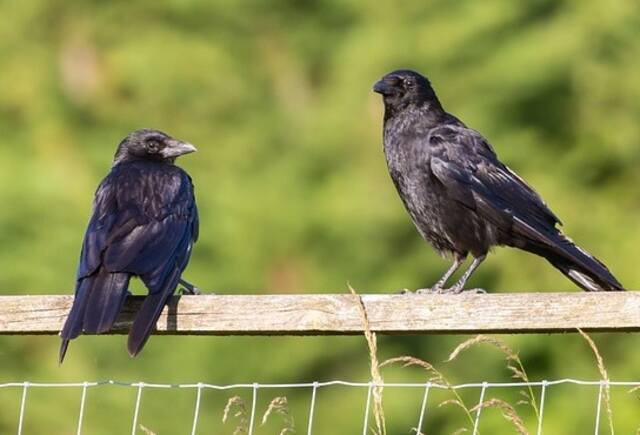Have you ever wondered, do birds have feelings and emotions, just like us? It’s a question that has been on the minds of bird enthusiasts, ornithologists, and pet owners for quite some time. While it’s widely acknowledged that birds have basic emotions like fear and pleasure, what about more complex emotions like love or grief?
In this article, we will delve into the topic to get a better understanding of the emotional capabilities of birds and how they compare to our own. So come along on this journey with us as we explore the fascinating world of avian emotions.
Table of Contents
Overview of Topic
When discussing the topic of whether or not birds have feelings and emotions, it is important to note that there is no definitive answer. It is difficult to measure emotion in any species, especially one so different from our own.
While some scientific studies point to indications that birds do experience emotion, others show conflicting results. This makes the question an interesting one for animal behavior researchers and bird enthusiasts alike.
Further research can help us understand more about how these creatures think and feel, which could lead to better ways to relate to them in our everyday lives.
Purpose of This Blog
Birds have long been seen as a symbol of freedom and joy, yet many people are unaware of the emotional capabilities of these amazing creatures. In this blog, we will investigate if birds really do possess feelings and emotions, or if their seemingly loving nature is simply instinctual.
We’ll start by exploring the biology behind bird behavior—such as hormones and neurochemicals—and delve into research about how different species demonstrate emotions and intelligence.
Finally, we will look at ways to recognize if your feathered friend may be feeling something other than basic needs such as hunger or fear. Join us as we explore the fascinating world of avian emotion!
Do Birds Have Feelings and Emotions?
This is a question that has been debated for centuries, as there is no scientific evidence to definitively answer it. However, it is widely accepted among pet owners and birdwatchers that they do indeed possess feelings and emotions.
Birds also display complex social behaviors such as mating rituals or defending their territories from others. These behaviors suggest the presence of emotion in birds, even though there is no scientific proof yet.
Birds also form strong bonds with other animals and humans alike; this indicates that they are capable of forming close relationships similar to those found in mammals.
Understanding Bird Feelings and Emotions
Love & Affection: Parental Care & Bonding
When it comes to love and affection, birds are no exception. Just like mammals, many birds also show parental care for their young and form deep bonds with their mates. For example, many species of waterfowl mate for life and form powerful bonds that can last a lifetime.
Parental care is also common in birds such as raptors, which may share incubation duties, with both parents taking turns keeping the eggs warm during the nesting period.
Birds often demonstrate strong emotions towards members of their own species, whether they’re mates or family members, through physical displays of affection like preening each other’s feathers.
This shows that birds have the capacity to feel love and affection just as much as any mammal.
Fear & Tension: Flight Responses & Vocalizations
It is widely accepted that birds have the capacity to experience a wide range of feelings and emotions. Fear is one such emotion that birds often express through behavior, vocalizations, and physical responses when they are threatened or scared.
In terms of flight responses, some birds may attempt to flee from danger with an increase in speed and agility or engage in fight or flight behaviors—which involve aggressive displays such as posturing or chasing predatory threats away.
Additionally, fearful birds may also communicate their alarm vocally by chirping loudly at higher frequencies than normal. These vocalizations serve as warning calls for their feathered companions that there is danger nearby and can be heard from quite some distance away.
Anger & Rage: Aggressive Behavior & Territoriality
Birds are not only capable of feeling emotions like joy, fear and affection, they can also experience anger and rage. This aggression is often linked to territorial behavior, in which a bird will become aggressive if another animal or person encroaches on their land. Common signs of aggression include flapping wings, ruffling feathers and loud vocalizations.
In some cases, birds may even attack intruders with their beaks or talons, as an effort to protect their space. Additionally, birds can direct these feelings towards their flock members; for example, when two birds compete for the same food source or mate.
It is important to note that aggression in birds should not be taken lightly, since these animals can cause serious harm with their sharp claws and powerful beaks.
Grief & Sadness: Mourning of Lost Companions
Grief and sadness are powerful emotions that many species of birds experience when they lose a companion. Research has found that some species form strong social bonds and suffer from the loss of their companions in ways similar to humans.
Mourning behaviors can include long-term separation anxiety, changes in vocal behavior, depression, changes in sleep patterns, and alterations of normal behaviors such as eating or preening. Some birds have even been seen calling out for their lost partner, displaying signs of deep misery in his/her absence.
This evidence suggests that birds may have feelings and emotions similar to those experienced by humans when facing devastating losses, such as the death of a loved one.
Uncovering the Interplay of Emotion and Instinct in Avian Behavior
Investigating Bird Cognition
The topic of whether birds have emotions or are they driven by instinct has been debated for centuries and continues to be studied today. Birds appear to show signs of happiness, curiosity, fear and other behaviors that suggest they may experience feelings, but how much these resemble those displayed by mammals is still unknown.
Recent research into bird cognition suggests that birds do possess the capacity for complex emotions, with some species even displaying a basic form of empathy. Studies indicate that birds can become attached to humans and form bonds with one another, exhibiting behavior more akin to our own than previously thought possible.
Understanding Bird Emotions for Better Birdwatching
Observing Unusual Behaviors
A key factor in being a successful birder is being able to recognize the emotions of birds. By understanding how birds act in certain situations, we can gain valuable insight into their behavior and increase our chances of seeing them in the wild. A good way to do this is to observe unusual bird behaviors that may signal emotion.
For instance, when a bird fluffs its feathers or freezes in place, it may be communicating fear or stress. Conversely, if a bird stretches out its neck and wings and jumps around energetically, it could be displaying happiness or excitement.
Paying attention to these subtle cues can help us better understand birds’ inner worlds and become more effective birders!
Being Mindful of Stressors
Birding can be an incredibly enriching and rewarding hobby, but it’s important to remember that birds are living creatures with emotions. It’s worth understanding the emotional states of our feathered friends in order to be a better birder.
Doing so will help us ensure that birding is done respectfully, while also being mindful of potential stressors. For example, too much noise or too many people near a bird can lead it to become stressed out or scared.
Taking the time to observe how birds behave when they’re undisturbed can help us determine what activities might cause them distress and how to avoid these situations.
We should also pay attention to birds’ reactions when we do approach them to get closer looks – if they seem agitated or startle easily, then it’s best to back off and give them some space.
Taking the time to understand birds’ emotions can not only make us better birders but help us protect and respect our feathered friends as well.
Appreciating Individual Differences Among Wild Birds
Each individual bird has their own unique personality and behavior patterns which make them unique. By learning to appreciate these subtle differences among wild birds, we become better birders and gain a deeper understanding of the natural world around us.
We can observe how different species interact with each other in breeding pairs or large flocks and witness moments of trust and comfort between them.
By understanding the feelings of birds, we are more likely to develop an appreciation for their importance in nature and respect for their presence in our lives.
Moral Implications
When exploring the idea of whether birds have feelings and emotions, it is important to consider the moral implications. The ethical implications depend on how we choose to view and treat animals, especially those in captivity.
If we deem that they can experience emotions and feeling, then it would be wrong to subject them to cruel treatment as they could suffer emotionally and mentally. We ought to treat these creatures with respect and dignity just like humans, understanding that their lives matter too.
In addition, if birds do indeed possess feelings and emotions, then research must be done in order to understand their behavior better so that they can be provided with a suitable environment where they can live happy, healthy lives.
Encouraging Positive Interactions with Other Species
As human beings, it is important to understand the value of positive interactions with other species. In doing so, we gain a deeper understanding and appreciation for all of nature’s creatures and the role they play in our own survival. One species in particular that deserves special attention is birds.
Birds are amazing creatures that possess an impressive array of behaviors and emotions. They display affection, loyalty, care for their young ones and even demonstrate grief when a family member dies.
By showing our respect for them, we can encourage positive interactions between us and them, which will benefit us both spiritually and physically.
As we build relationships with birds through acts of kindness such as providing food, shelter, or freedom from harm, they may respond by becoming friendly companions who help to bring more joy into our lives.
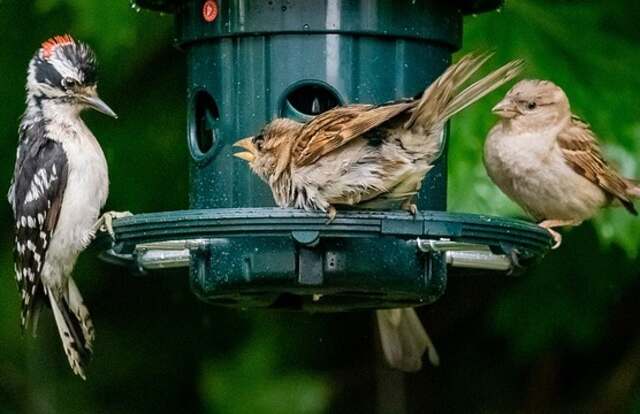
Conclusion
In conclusion,the evidence suggests that birds do indeed feel and display a range of emotions. They can be affectionate to humans, demonstrate loyalty to their mates, show anger or joy when interacting with other birds, and even grieve when a loved one passes away.
This research provides us with an important insight into the emotional lives of these creatures – one which is sure to broaden our understanding of these remarkable animals.
Frequently Asked Questions
Do birds have feelings when their babies die?
Recent research has found that birds, much like humans, show signs of sadness when they lose their offspring. Experts have witnessed this firsthand and noted that parents become more subdued and agitated after the death of one or more chicks from the nest.
They often stop feeding themselves and start to pull out feathers in an attempt to cope with the loss. In addition, some species will even try to build a new nest nearby as if in tribute to the lost young.
Overall, it is clear that birds do experience sorrowful emotions upon the demise of their young ones, just as we would expect from any loving parent – whether they be feathered or not.
Can birds sense emotions in humans?
While it is not possible to definitively answer this question, some experts believe that certain types of birds are indeed capable of recognizing and understanding human emotions. Birds have evolved to be highly perceptive animals, so it stands to reason that they could detect something as complex as a human’s emotion.
Parrots and corvids, for example, are known for their intelligence, problem solving skills and ability to learn language. These traits could indicate an underlying capacity to identify subtle shifts in facial expressions and body language that may hint at a person’s emotional state.
Additionally, these birds tend to form strong relationships with their owners; this indicates an impressive level of sensitivity which could extend beyond mere recognition of physical cues – suggesting they may actually empathize with people on an emotional level.
Do birds feel pain?
All birds, regardless of size or species, possess pain receptors that provide them with the ability to experience physical sensations. This means they can experience pain from an injury, illness or chronic health condition just as we do.
The signs of pain in birds include changes in vocalizations, posture, movement, facial expressions and behavior such as avoiding activities they would normally engage in.
It’s important for bird owners to recognize these signs, so they can provide timely medical treatment when needed.
Do birds feel love towards humans?
Recent research into the behavior of birds has suggested that some species may develop an emotional connection with people. Studies involving parrots, for example, suggest that they can form strong bonds with their human caregivers over time, which is evidenced by an increase in physical contact such as preening and vocalizing when near them.
Other bird species like chickens and ducks have also been observed to become attached to their owners through similar behaviors. This evidence indicates that birds may be capable of feeling love towards humans, although there is no definitive answer yet, since the emotional capabilities of animals cannot be accurately measured or verified at this time.
Do birds feel sadness?
Studies suggest that when an individual bird experiences a stressful event such as the death of its mate or flock member, it may show changes in behavior akin to what humans might experience during times of grief.
A decrease in activity and alertness, a decrease in vocalizations, disinterest in social interactions with other birds—all these have been observed after a traumatic event. In addition, some species even exhibit physical symptoms like lower feather quality and weight loss that could be related to stress-induced depression.

